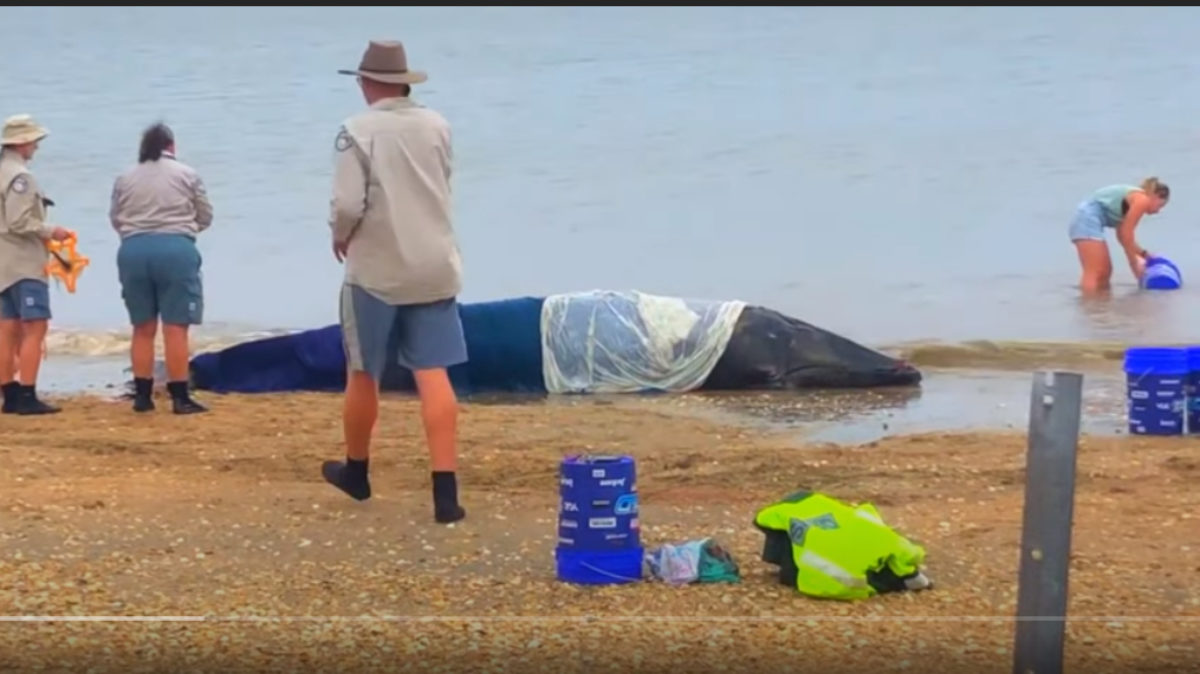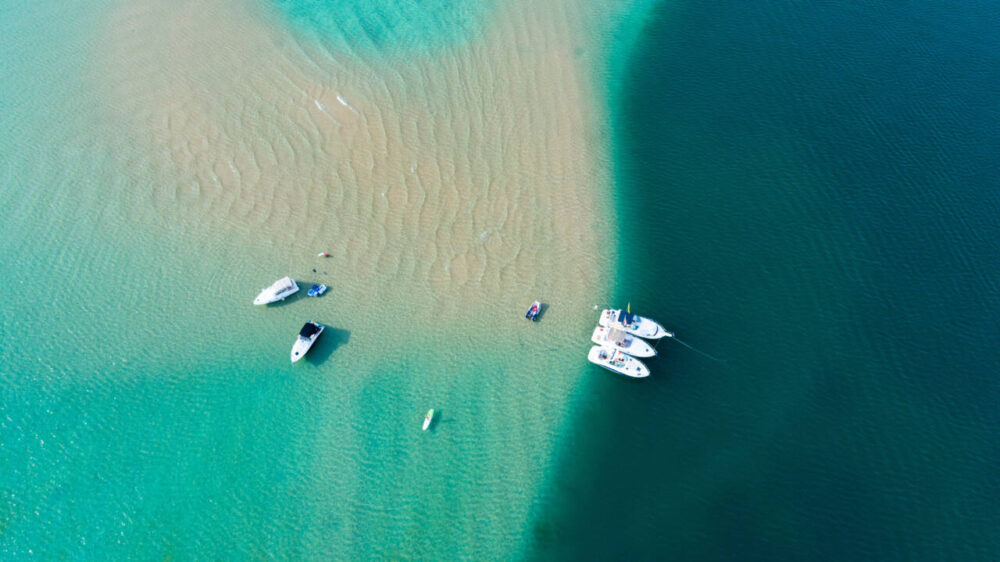People work together to help whale stranded on beach in touching viral video
In the latest instance of humans being awesome, a group of beachgoers in Australia came together to rescue a whale that washed ashore and became stranded in the sand.
The rescue happened on May 20, when people at Australia’s Hervey Bay Beach noticed a dwarf minke whale stuck on the beach and unable to return itself to the water. They instantly flew into action, pouring water on the whale with nearby beach buckets and draping a cloth over it to keep it moist. They knew they had to keep it from becoming dehydrated as they waited for the tide to come back in.
Meanwhile, marine specialists from Queensland parks and wildlife used the opportunity to collect data about the dwarf minke whale, including taking its measurements.
Finally, when the tide returned, the rescuers helped ease the massive marine mammal back into the water with the help of a stretchy band that they wrapped around the frightened creature. After a good deal of teamwork and a lot of elbow grease, the whale was safely pushed back into the water — until it swam right back near the beach and had to be helped a second time. (Whales can become disoriented in these situations.)
The second rescue was a success and the whale even gave everyone a good soaking with some slaps of its huge tail fin on the surface before swimming away!
Watch a video of the whole rescue below from Hervey Bay Snake Catchers on YouTube:
“[It was] a heartwarming moment of community spirit and animal rescue. It was wonderful to see,” spectator and local snake catcher Drew Godfrey told Newsweek. (Yes, local snake catcher sounds like a deeply Australian career to have).
Godfrey’s YouTube channel was the one that posted the viral video of the rescue.
Known as cetacean stranding, or beaching, these incidents can often be fatal for whales. They often die due to dehydration or when the incoming tide covers their blowholes. No one exactly knows why these strandings occur, but experts have theorized it may be due to changing water temperatures and geomagnetic disruption caused by solar storms. Other times, whales may follow animals like porpoises into shallow waters, where they become stuck and can not return to deeper water, eventually washing up on shore.
Dwarf minkes, which live in the Southern Hemisphere, were first discovered in the 1980s and, despite their name, can grow to be as large as a double-decker bus. They can live for almost 60 years, and they are known to be friendly and gentle.







